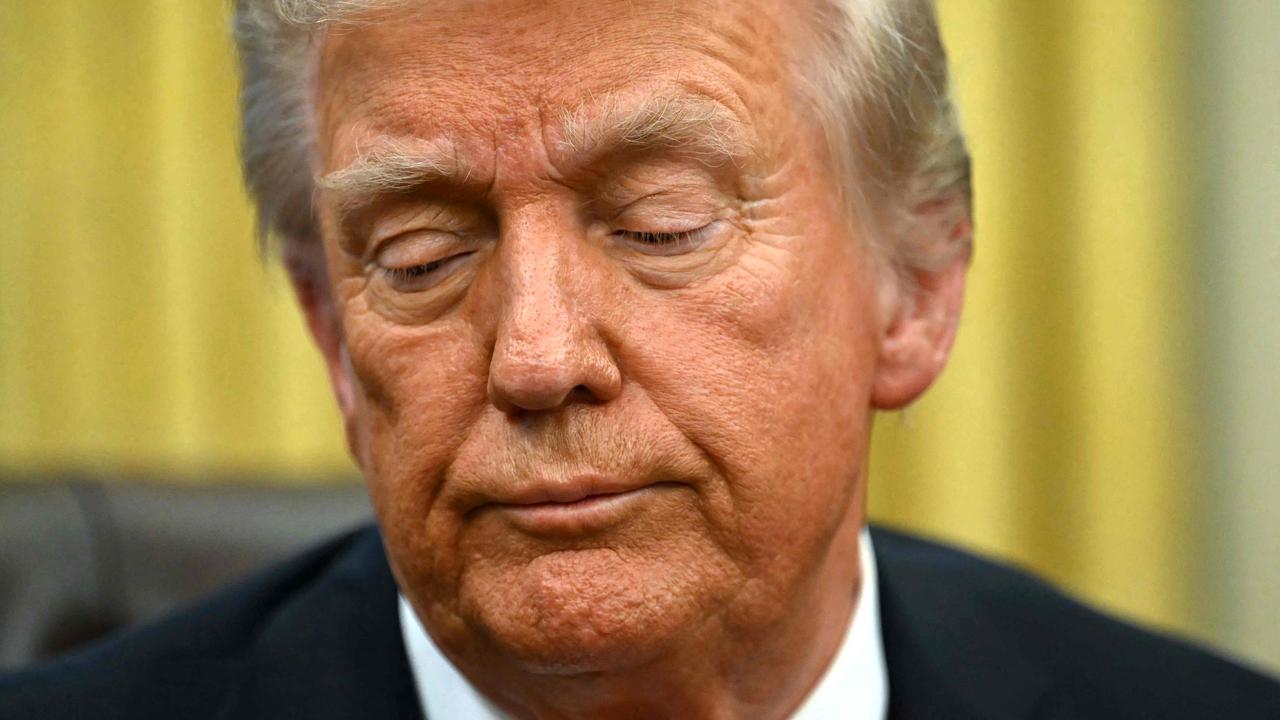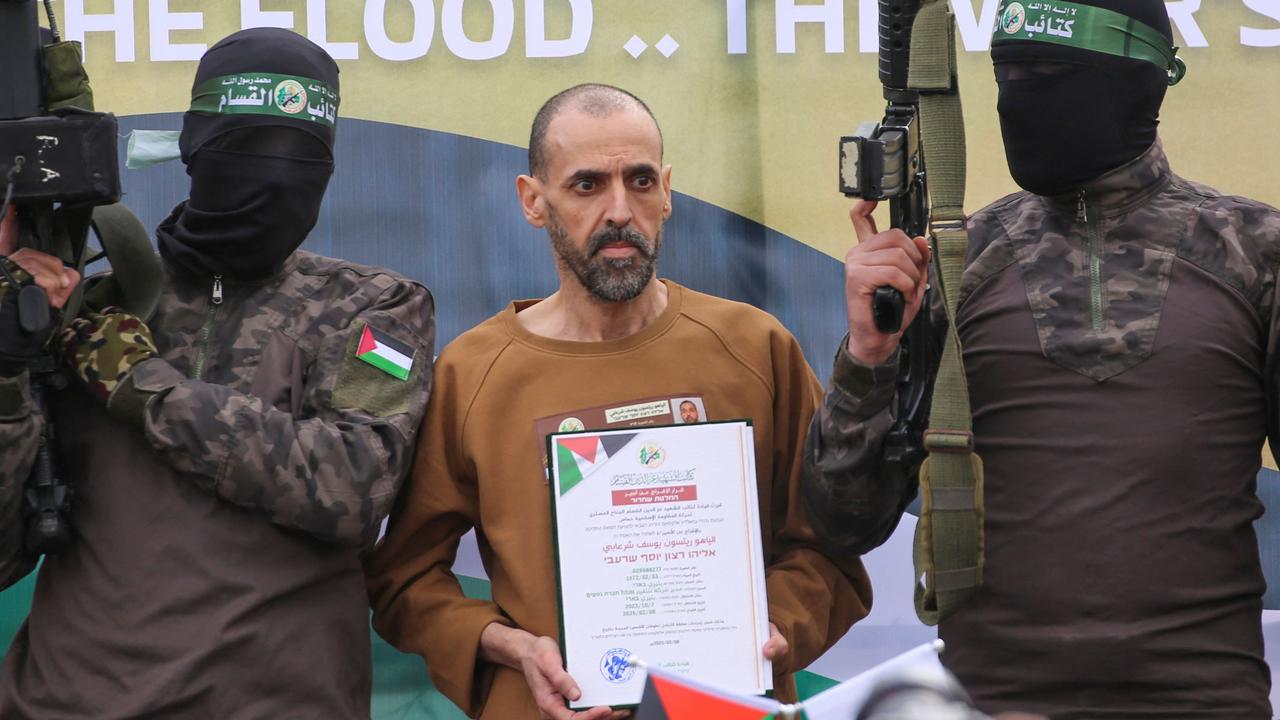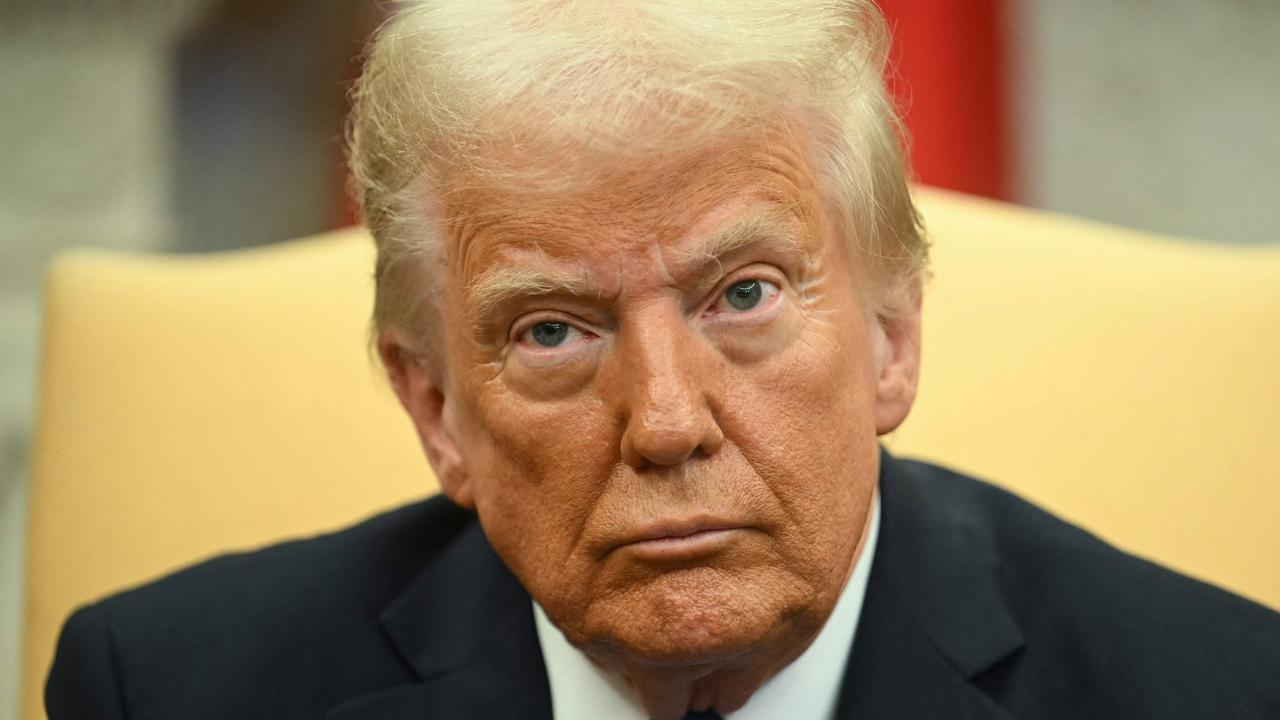Iraqi forces close in on IS stronghold Mosul
IT HAS been described as one of the most important battles this century, but it is not expected to end in a quick victory.
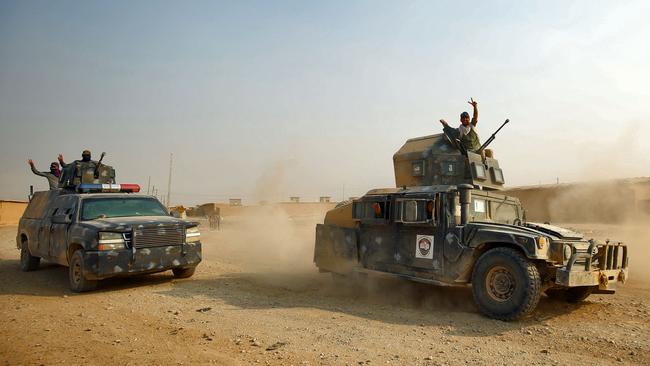
IRAQI forces have advanced to within five kilometres of Mosul in an offensive against the Islamic State group’s last major stronghold in Iraq.
Interior Minister of the Kurdish Regional Government (KRG) Karim Sinjari said he expected the battle, with what is believed to be between 4,000 and 8,000 militants, would not be a quick victory.
Mr Sinjari, who is also acting Defence Minister in the area, told Reuters Islamic State fighters would put up a fierce fight because of Mosul’s symbolic value for the hardline Sunni jihadis.
“If they resist in the city, especially in old Mosul, it will be a big fight ... the roads are very thin, very narrow,” Mr Sinjari said.
Islamic State leader Abu Bakr al-Baghdadi declared a caliphate and himself the leader of the world’s Muslims at a Mosul mosque after seizing Iraq’s second largest city in 2014.
“If Mosul is finished, the caliphate they announced is finished. If they lose in Mosul, they will have no place, just Raqqa,” Mr Sinjari said.
The Syrian city of Raqqa is Islamic State’s other major stronghold.
“They will have to go to Syria. They will be surrounded in one area.”
The much heralded battle to capture Mosul began last week and is expected to be the most important battle fought in Iraq since the US-led invasion in 2003.
Iraq has come a long way since June 2014 when five Iraqi army divisions crumbled as Islamic State swept into Mosul.
Islamic State has been dislodged from other major cities such as Falluja. That campaign lasted just over one month.
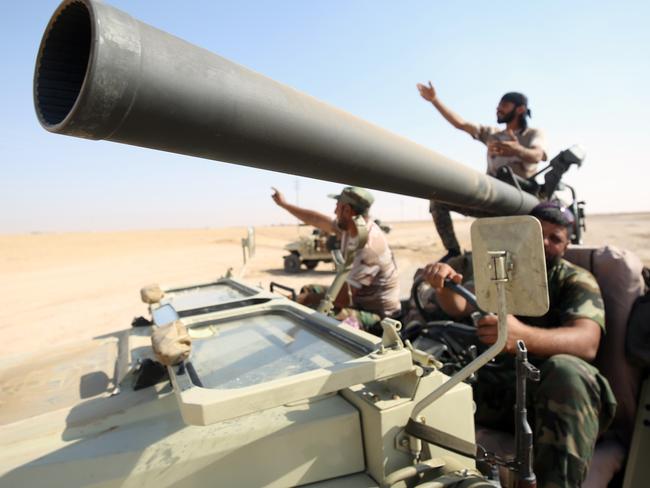
IS LEADER AL-BAGHDADI SIGHTED IN MOSUL
It is not clear whether al-Baghdadi, an Iraqi who spent time in a US military jail in Iraq, will risk death or capture and join his fighters in the battle for predominantly Sunni Muslim Mosul, home to more than 1.5 million people.
“According to unconfirmed reports, Abu Bakr was in Mosul three days ago. People saw him visiting fighters and encouraging them. We are not sure he was present, this is information,” Mr Sinjari said.
He said the jihadi group, which comprises former Sunni officers from Saddam Hussein’s army, had built underground tunnels and dug a trench around Mosul which they filled with oil to set on fire when the offensive gets closer to the city.
“There are many reports that there are elements that have agreed to kill members of Daesh. Some members of Daesh were killed in the street,” he said, using the Arabic acronym for Islamic State, which rose from the ashes of al-Qaeda in Iraq.
“They don’t want Daesh. Some were killed and some left.
“These are people who have weapons, who carry out attacks in specific areas at night and slip away.”
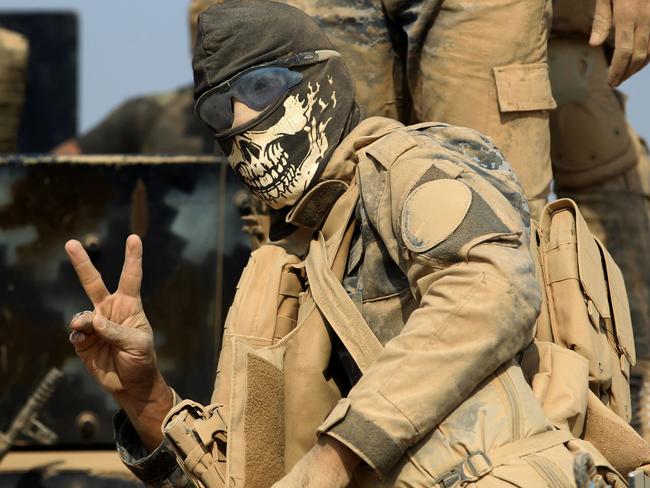
ANOTHER TOWN TAKEN AS FORCES CLOSE IN
Kurdish fighters said they had taken the town of Bashiqa near Mosul from Islamic State as coalition forces pressed their offensive.
A US official said Masoud Barzani, President of the Iraqi Kurdish Region, had informed US Defence Secretary Ash Carter that Kurds had succeeded in liberating Bashiqa from IS.
Kurdish Peshmerga fighters told reporters at the scene they had entered Bashiqa, but journalists were not being allowed into the town.
Turkish artillery is supporting the Peshmerga, Turkish Prime Minister Binali Yildirim was quoted as saying to media outlets.
Turkey has troops at a base in the area where it has been helping train Iraqi Kurdish fighters.
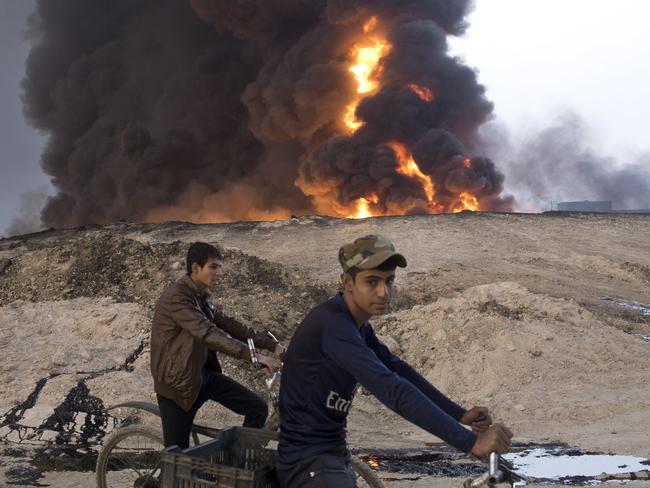
HEAVY CASUALTIES
“We have a shortage of human resources, medical equipment, medicine and specialised doctors,” Lawand Meran, a doctor at Arbil West hospital, said.
“Soon, if we have 1,000 casualties, our capacity will not be enough.”
US military officials have revised their estimate slightly upward for the number of IS fighters in and around Mosul.
They believe IS is defending Mosul, where the “caliphate” was proclaimed in June 2014, with 3,000 to 5,000 fighters inside the city and 1,000 to 2,000 in the outskirts.
There is deep concern for an estimated 1.2 million civilians still believed to be in the city.
Several thousand civilians fleeing the fighting and the jihadists who ruled them for two years have escaped to camps for the displaced south of Mosul.
“Over 5,000 people are currently displaced and in need of humanitarian assistance,” the United Nations said in an update on Sunday.
“Population movements are fluctuating as the front lines move, including people returning to their homes following improved security conditions in the immediate area,” it said in a statement.
Iraqi forces are now fighting in sparsely populated areas but when they near the limits of the city itself aid groups fear the start of a huge exodus.
A million people could be displaced, sparking an unprecedented humanitarian emergency in a country where more than three million people have already been forced from their homes since the start of 2014.

